detail profile aribert grimmer
Peran Yang Di Mainkan Aribert Grimmer
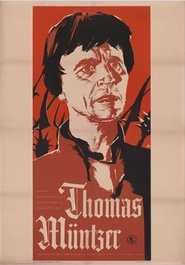 In 1523 young Thomas Mntzer arrives with...
In 1523 young Thomas Mntzer arrives with...Thomas Müntzer 1956
In 1523, young Thomas Müntzer arrives with his wife Ottilie in the Thuringian village Allstedt to assume the rectorate. As a follower of Luther′s teachings, he finds in the Bible not only reasons for clerical, but also for secular reforms. But when Luther turns away from the rural population after a discord with Müntzer, it is Müntzer who becomes the peoples′ spokesman. He is forced to go to Southern Germany, where he convenes with revolting farmers. But his way leads him back to Thuringia. In 1525, he and Heinrich Pfeiffer form the centre of the Thuringian peasant uprising in Mühlhausen, but their success is diminished by the fact that peasants and craftsmen don′t seem to be able to work together. In Frankenhausen, Müntzer becomes the leader of a peasants′ army that is set to fighting the ruler′s army – and sustains a devastating loss. Müntzer is arrested and sentenced to death by decapitation for his insurgency.
 Krestan Serbin a 64yearold Sorbian farmworker...
Krestan Serbin a 64yearold Sorbian farmworker...52 Weeks Make A Year 1955
Krestan Serbin, a 64-year-old Sorbian farm-worker, considers himself non-political. He owns a few acres, a few pigs and a cow, and intends to pass all this on to his daughter Lena. Lena, however, shows only little interest. Krestan’s situation becomes more difficult when he is meant to become integrated into the agricultural production cooperative. He even gets offered a position as Training Supervisor. Although Krestan does not oppose the new policy, he is unwilling to surrender his properties. When the political die-hards who intend to hinder the progressive movement try to win him over, Krestan realizes that it is time to show colours.
 This film is set in a...
This film is set in a...Der Teufel vom Mühlenberg 1955
This film is set in a medieval mill town in the Harz mountains. The greedy and brutal millman and his accomplices, the castle steward and the mayor, set fire to a forest mill that the farmers used for processing their grain. Without their mill, the farmers must now rely on the millman's services. When the farmhand Anna uncovers the millman’s crimes, he swiftly detains her and a young miller, Jörg. The forest spirits have a different plan, however, and they free the young couple with the charge to rebuild the ruined forest mill and turn things around for the villagers.
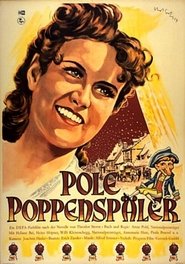 On his travels Paul a journeyman...
On his travels Paul a journeyman...Pole Poppenspäler 1954
On his travels, Paul, a journeyman from northern Germany, runs into a childhood friend, Lisei, a puppeteer's daughter. They fall in love and get married. Together with Lisei's father, the young couple moves to Paul's hometown. Although Paul himself is accepted - even respected - by the stuck-up and snooty citizens, the young woman is rejected by the town dwellers, who are imbued with class arrogance. Paul stands up for his wife but the scorn and abuse heaped on her weigh heavily upon him.
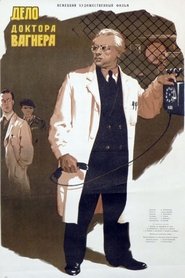 Dr Wagner is a scientist currently...
Dr Wagner is a scientist currently...The Case of Dr Wagner 1954
Dr. Wagner is a scientist currently working on an experiment for the Asta plant in East Berlin. If the experiment is successful its a brilliant new invention. But Wagner is the target of sabotage, and all the decisive experiment fails. Wagner can not explain this setback.
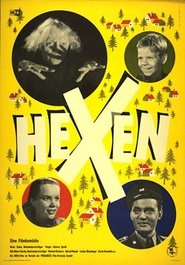 Germany in 1949 The residents of the...
Germany in 1949 The residents of the...Hexen 1954
Germany in 1949: The residents of the Thuringian village Hunsdorf are still heavily influenced by archaic superstition and explain unusual events with preternatural powers. The same happens when pigs again and again disappear from different farmyards. The village residents firmly believe that witches are the reason for this mystery. Not even police detective Kühlemann who is sent to Hunsdorf is able to dissuade them from their superstition. Thus, the farmers think his investigation is aimless and they do not support him at all. With a lot of patience and well-made arguments he finally convinces little Peter that there are no witches. Next, Peter’s grandfather and teacher Marianne take Kühlemann’s side. With their support, the police detective eventually finds out the truth and is able to put a stop to the gang of crooks that had been stealing the pigs.
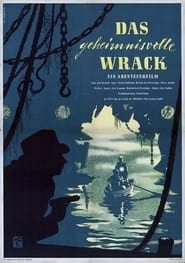 Several children find out whats the...
Several children find out whats the...The Mysterious Wreck 1954
Several children find out what's the matter with a wreck offshore, which puts them into jeopardy.
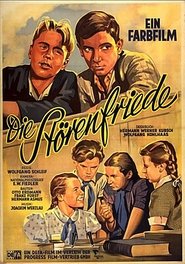 Schorsch and Franz are two rascals...
Schorsch and Franz are two rascals...The Troublemakers 1953
Schorsch and Franz are two rascals who are full of mischief and constantly tease both their teachers and their fellow pupils. Vera, the new classmate, decides to put her foot down and bring an end to the poor situation. With skill, patience and the help of the other pioneers she finds out about the troublemaker’s love for miniature trains and tries to direct their redundant energy onto the right track. However, Vera and her pioneers have to overcome some resistance before Schorsch and Franz finally change their behavior and become better classmates.
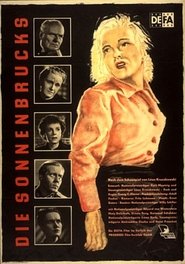 Professor Sonnenbruck is a scientist who...
Professor Sonnenbruck is a scientist who...The Sonnenbrucks 1951
Professor Sonnenbruck is a scientist who is not particularly interested in politics. Even the meeting in 1943 with his former assistant Peters does not change him. He does not betray Peters, who has escaped from a concentration camp, but that is already enough for him. But after the war Sonnenrbruck gets into a conflict of conscience. He thought that science was finally free of politics again only to find the opposite happening at his university in Göttingen. A medical congress in the GDR brings him together with Peters, who is working on a major research contract there. Sonnenbruck decides to visit Peters.
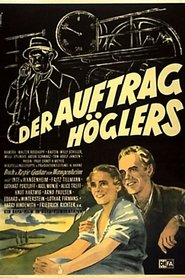 The Luisin ridge is divided not...
The Luisin ridge is divided not...Der Auftrag Höglers 1950
The Luisin ridge is divided not only by the river, but also by the zone boundary. The old CEO Högler still lives in the west, the eastern part has been expropriated and is managed by the chief engineer Dr. Tellen. He is working on a new steel production process that Högler absolutely needs. Högler's means to achieve his goal are bribery, espionage and slander. Trade union member Maria Steinitz almost becomes a victim of slander. However, the intrigue is exposed and Hogler's criminal intentions are thwarted. At a large production meeting, the old people's controller Hufland exposes the true culprits. Maria and Fritz Rottmann, a trade unionist from Munich, who have known each other since the days of the anti-fascist resistance, embrace each other.
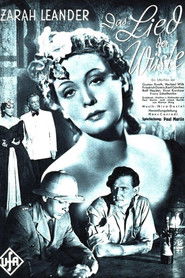 When the famous singer Grace Collins...
When the famous singer Grace Collins...The Desert Song 1939
When the famous singer Grace Collins got off the plane that had flown her a remote place in Northen Africa little did she know she would meet love and adventure there. If she came there, it was to visit Sir Collins, her stepfather. Falling in love was not on the agenda but how could she resist the charm of Nic Brenten, an alluring and idealistic Dutch engineer? Butcan devotion and generosity really compete with the greed of someone like Sir Collins, a cynical financier who wants to dispossess the locals of the copper mine Brenten helps them to develop ?...
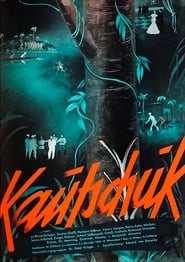 About how the British broke the...
About how the British broke the...Kautschuk 1938
About how the British broke the Brazilian monopoly on natural rubber. The storyline suggests a complex relation between adventure, military conquest and imperialism.

 Salem 1692 The young Abigail seduced and...
Salem 1692 The young Abigail seduced and...
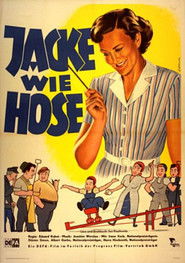
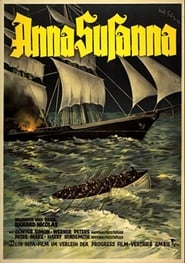
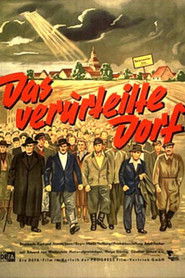 East German propaganda film about an...
East German propaganda film about an...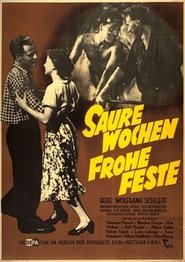
 Two dubious characters disguise themselves as...
Two dubious characters disguise themselves as...